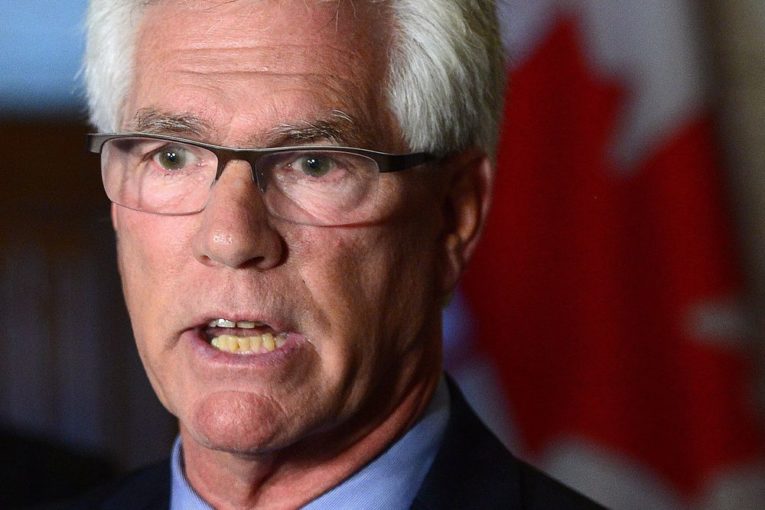
It has been a rough week on the pipeline front in Canada.
Kinder Morgan Canada filed a notice of motion with the National Energy Board on Tuesday, requesting it establish a standing panel to determine whether Trans Mountain has complied with the second condition of its approval certificate, which is to carry out the specified commitments, including applying for all associated permits — federal, provincial and municipal.
The company believes the City of Burnaby is obfuscating the process by not granting the permits in a timely manner and the delays are adding to its costs.
On Thursday, a second front opened when the Keystone pipeline spilled 5,000 barrels of oil in South Dakota, days before Nebraska is to rule whether the XL portion of the pipeline can pass through the state. While the spill is contained, the timing could not be worse.
All of this should have the federal government fretting.
Not only did it spend political capital one year ago in approving the Trans Mountain expansion, TransCanada’s cancellation of its Energy East project last month means the options for market access are getting smaller.
Yet the need to transport a forecast 1.5 million additional barrels a day by 2030 has not gone away.
For that very reason it’s time the federal government get even more vocal in its support of the Trans Mountain project.
Federal Natural Resources Minister Jim Carr was in Alberta this week to meet with industry and government officials.
Carr said the consistent message he heard was not about market access but the need for predictability, with discussions focused on competitiveness and regulation. However, it’s easy to draw a straight line from predictability to market access and pipelines.
Kinder Morgan committed to fulfilling 157 conditions when receiving federal approval for Trans Mountain. It assumed applying for permits from Burnaby would be straightforward and predictable.
That has not happened, which is why it filed a second notice of motion with the NEB this week. The first was submitted at the start of November.
At this point, Ottawa is not prepared to intervene, although it remains a real possibility since the buck stops there on this one. Trans Mountain falls under federal jurisdiction, not provincial or municipal.
What Carr is prepared to do is visit B.C. — which he’ll do in the near future — to reiterate the federal government’s support for Trans Mountain.
“I think it’s important that the value of expanding our export markets is explained to the people of Canada, people of British Columbia,” he said in an interview Friday. “We want to make it absolutely clear that Canadians know that the pipeline that Canada believes to be in the national interest is a pipeline that we want built. That message will be unequivocal and clear.”
The point Carr deems important is the fact Trans Mountain will generate more than 15,000 jobs. An ocean protection plan is also in place and terms of reference for monitoring the project are being developed with Indigenous groups along the route.
It will also add an estimated $73.5 billion in resource revenue to the country and $6.8 billion in capital expenditures — not to mention the job opportunities for Indigenous businesses and others.
“We believe on all major fronts, job creation, environmental protection and Indigenous partnership that the government of Canada has done what it said it would do,” Carr said. “We feel we are doing the responsible thing in the national interest and we will continue to send that message to all Canadians.”
Or, as Kinder Morgan Canada stated in its latest submission to the NEB: “A failure of process should not be allowed to defeat the significant benefits the project will bring to Canada in terms of jobs, taxes, economic development and increased resource revenues — all as a result of private investment.”
The NEB has its own process for approvals and oversight of projects. Government officials voicing support for a project does not constitute meddling. Carr is as entitled to articulate the federal government’s position on the project as Premier John Horgan is to do the same on behalf of British Columbians.
Alberta could use more help on the issue.
Premier Rachel Notley is about to embark on a cross-country speaking tour to make the case for a healthy energy sector and the benefits that brings, but it’s not enough. She needs federal support and the backing of other premiers.
In recent weeks, oil prices have hit levels not seen in two years. The rise has elicited a few cheers and some audible sighs of relief. But for companies not exposed to the Brent crude price, the cheers have been muted.
It’s effectively a double discount — between West Texas Intermediate and Brent and Western Canada Select and WTI.
One solution for dealing with the differential is to get the oil to other markets so it can capture the Brent price. Canadian companies — because they don’t have the same access to the Gulf Coast, which captures Brent pricing — are at a distinct disadvantage to their American peers.
Carr and others have said countless times that it’s untenable for Canada to have 99 per cent of its energy exports going to one country. And that’s especially true when that country is now a competitor.
Commodity prices might not be predictable, but other variables can and should be controlled.
Companies that have received the required permits from federal and regulatory authorities should be able to rely on those approvals and proceed with their projects without fear of being stymied by mayors who don’t understand the concept of federalism.
Deborah Yedlin is a Calgary Herald columnist
You can read more of the news on source
